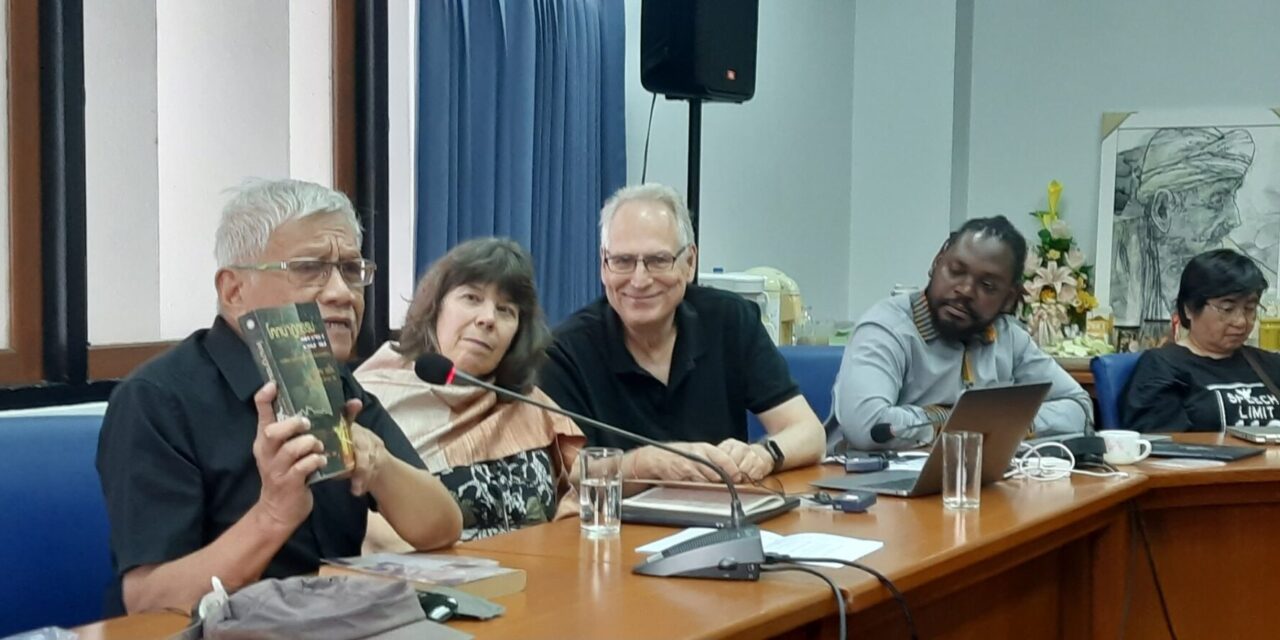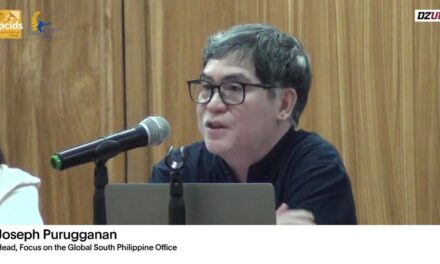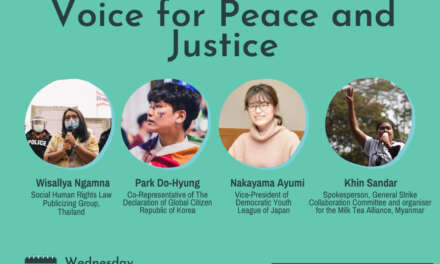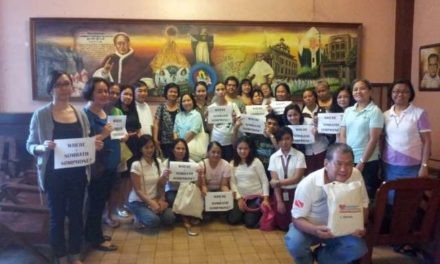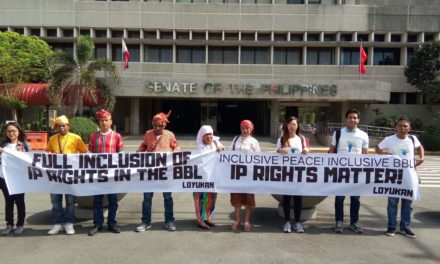The forum was hosted in person at the Jacques Amyot Meeting Room located on the 4th floor of the Wisit Prachuabmoh Building at Chulalongkorn University, and also online via Facebook Live on both CUSRI and Focus accounts. Attendees and participants gathered with the objective of fostering cross-cultural understanding, and therefore English-Thai interpretation services were also arranged, ensuring that the diverse audience could engage with the speakers’ ideas effortlessly.
The public forum began with a warm welcome and an introduction to the event’s theme and the collaborative effort between CUSRI and Focus. Assoc. Prof. Dr. Narumon Arunotai, Interim Director of CUSRI, highlighted the project’s rationale in her opening remarks. She outlined the project’s three-year endeavor to systematically analyze conventional development’s impact on lives and, crucially, to redefine “development” through grassroots movements and practices..
Dr. Walden Bello, a prominent Filipino sociologist, delivered insights into the collaborative research endeavor. Bello challenged the conventional narrative of development history, which often centers on documented records authored by influential figures. He stressed that these accounts frequently exclude the experiences and recollections of ordinary individuals impacted by development processes. The project seeks to retrieve histories rooted in grassroots experiences, aiming to redefine the understanding of development.
In his address, Bello referred to his own book, “A Siamese Tragedy,” as an exemplar of this approach. The book critically examines the development trajectory in Thailand through a critical lens. By conducting interviews and integrating personal narratives, the book offers a diverse range of perspectives, resulting in a nuanced exploration of development dynamics. The ” History of Development in Thailand from People’s Perspective” research project will adopt a similar methodology, focusing on the voices and memories of the people directly affected by development initiatives. This approach aims to uncover hidden stories and dimensions of development, illuminating the broader social impact beyond conventional narratives.
Jenina Joy Chavez, representing Action for Economic Reforms in the Philippines, provided a comprehensive account of the EDSA Revolution, a significant people’s uprising against the Marcos regime in 1986. Her presentation was underscored by the principle that there is no single narrative—instead, the revolution’s story is composed of myriad experiences. Chavez detailed the meticulous process of gathering firsthand accounts through video interviews. This material served as the foundation for the creation of six films, each a unique viewpoint contributing to a holistic understanding of the revolution. These films were subsequently showcased at the Bangkok International Film Festival in 2012.
Boaventura Monjane, hailing from the University of the Western Cape, shifted the focus to Southern Africa and Mozambique. He highlighted the struggles of indigenous communities in the face of large-scale agribusiness expansion. Monjane accentuated that the memory of dispossession remains vivid, as communities continue to resist and assert their right to their ancestral lands. These struggles for land and resource sovereignty are intricately tied to the identity and survival of indigenous populations.
Silvia Ribeiro, the Director of The Action Group on Erosion, Technology, and Concentration (ETC) and a former environmental journalist, posed a fundamental question: “Who Produces Our Food?” She emphasized the crucial role played by small-scale food producers, including peasants, indigenous communities, and artisanal fisherfolk. Despite utilizing relatively small areas of land and limited fossil fuels, these diverse groups contribute significantly to nourishment and biodiversity conservation. Ribeiro underscored the interconnectedness of these efforts, reflecting the intricate web of food production systems.
Professor Dr. Peter Rosset, an expert in agroecology, delved into the struggles faced by indigenous communities in Mexico, particularly within the Zapatista movement. This movement emerged as a response to land dispossession and sought autonomy and territorial control. Rosset highlighted that the Zapatistas reject state support, opting instead for self-governance and management of various community aspects. The movement is emblematic of the enduring significance of local autonomy in shaping the lives of indigenous communities.
Assoc. Prof. Dr. Prapart Pintobtang, Senior Researcher from CUSRI, discussed the historical trajectory of people’s movements in Thailand. Notably, he examined the period from 1973 to 1976, marked by the unification of rural communities against land exploitation. These collective efforts led to significant land reform initiatives. Subsequent decades witnessed the rise of various movements, including P-Move, advocating for social justice and agrarian reform.
The discussion served as a platform for voices from the global South to converge and share their diverse experiences. Each speaker highlighted different but interconnected localized struggles, from food sovereignty, land rights, climate and environmental justice, to social justice and democracy. By diving into deeper histories and adopting a longer perspective, the event encouraged expansive thinking and nurtured hope in the face of evolving political landscapes.
The symposium culminated in a dynamic Q&A session, where attendees engaged with the speakers, seeking to understand the broader implications of these movements. Assoc. Prof. Dr. Prapart Pintobtang posed a thought-provoking question: “In light of recent political events and elections, how can we forge connections between the state and the grassroots movements?”
The event concluded with a call to action. Surichai Wun’gaeo, Executive Director of CUSRI, expressed gratitude to the speakers and attendees for their contributions. He underscored that the symposium successfully illuminated the depth of history and the myriad ways in which social movements shape society. From this event, we left with a determination to weave together a tapestry of stories that challenge conventional narratives and reflect the true spirit of development.
If you want to watch the full discussion, please find it here.

